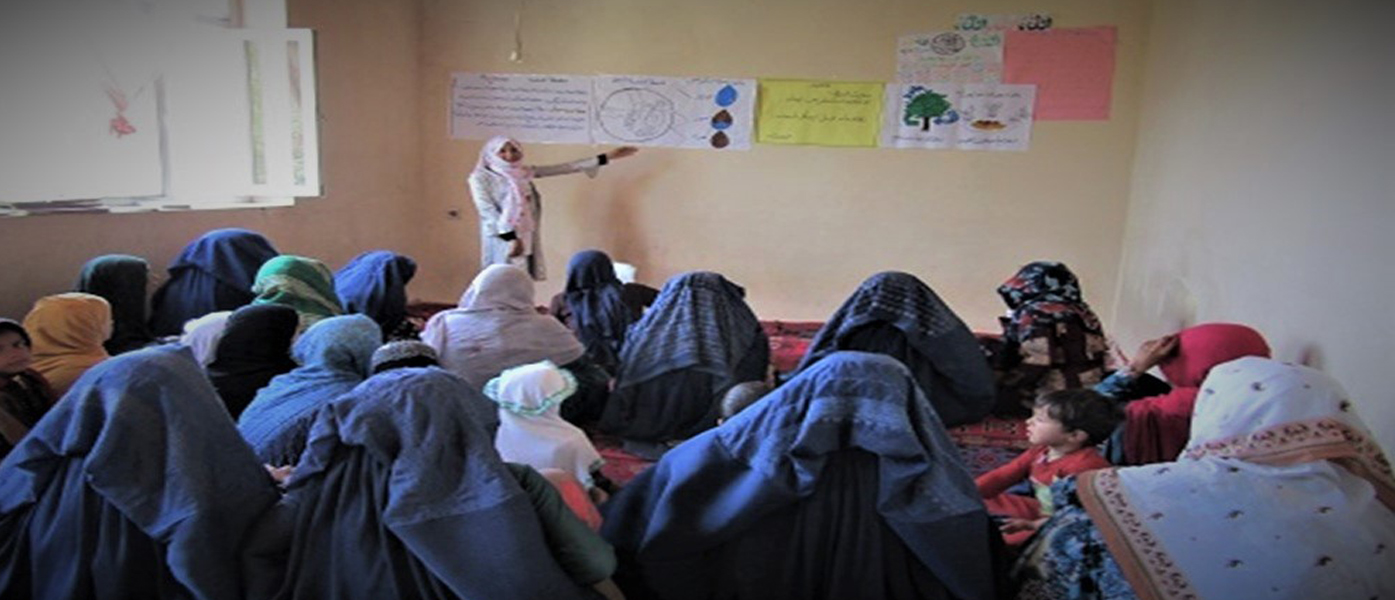
Women Contributed to Environmental Hygiene in Nawabad Baikhana
Nawabad Baikhana is a village located at the center of Sar-e-Pul province. Nearly 397 Households live in this village. The residents were concerned about the polluted environment, hygiene and health challenges as many people, particularly children were suffering from numerous diseases such as pneumonia, dysentery and diarrhea on a daily basis in the past.
To address the challenges, the Community Development Council (CDC) Health and Environment Sub-committee’s female members sought options, thus; they came to an idea to work together with the households’ female members. They started to conduct regular meetings and visited house by house in the village and raised awareness on the importance of community hygiene and how to keep things clean.
Ms. Nazanin, a member of Nawabad Baikhana CDC’s Health Committee says: The diseases caused by contaminated water and lack of hygiene in performing house works were usually leading to the death of our children. Fortunately, the CDC health committee members are now conducting regular campaigns and talk to the house wives’ around the importance of health issues. This practice resulted in a positive behavior change and we notice that the rate of diseases in our community has declined in comparison with past.”
Mr. Juma Khan, a village elder is pleased about the efforts paid by the CDC health sub-committee female members in the village and said: “My granddaughter, Zainab usually suffered dysentery, diarrhea and other illnesses and we had to visit the doctor at least two or three times for treatment. With thanks to the CDC members, after we taught our children about importance of hygiene while eating food and practicing other activities, and started to protect our courtyard and drinking water from sanitation viewpoints, my granddaughter has fully recovered, and now she doesn’t need to see any doctor at all”.
The CDCs established under the Citizens’ Charter are comprised of various sub-committees. These sub-committees include education, health, youths, agriculture, sanitation, etc. The objective of these sub-committees is to encourage villagers to serve their communities voluntarily in certain areas they have knowledge or experience aiming to participate and contribute in building their communities and play a role in its future.
×
![]()